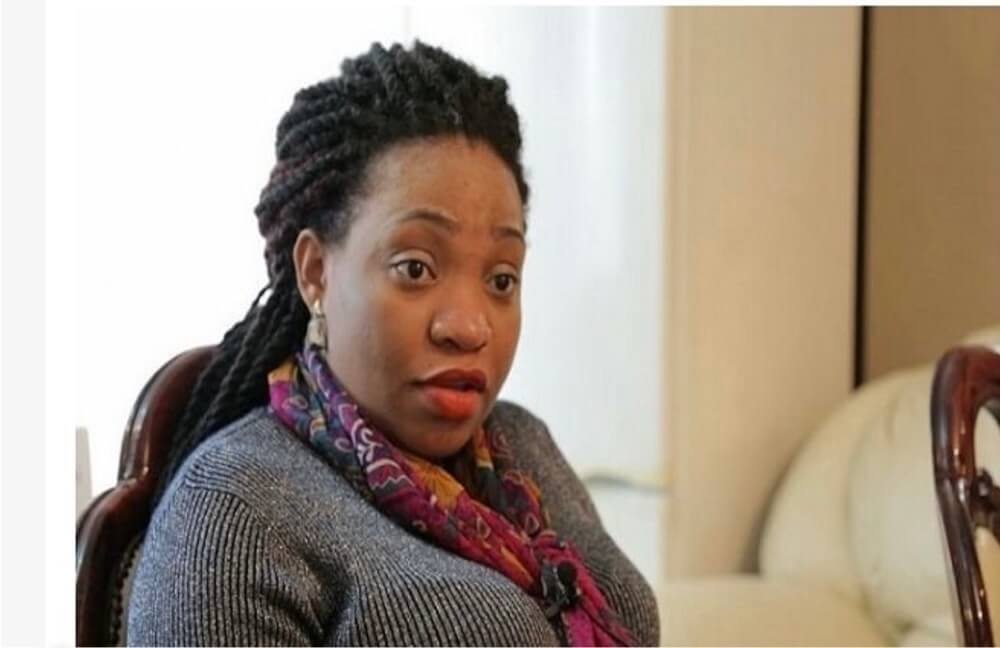‘It’s Unconstitutional, Expect Appeal’ – Kanu’s Wife Speaks On Husband’s Life Sentence
Uchechi Okwu-Kanu, wife of the detained leader of the Indigenous People of Biafra (IPOB), Mazi Nnamdi Kanu, has condemned the life imprisonment verdict delivered by the Federal High Court in Abuja on Thursday.
She challenged the ruling, described it as unconstitutional, and vowed to pursue an appeal immediately.
Uchechi voiced her displeasure publicly after the judgment triggered questions from her young son about his father’s fate.
She recalled, “I just had to wait for Nnamdi Kem to go into the house because I hadn’t told him what happened. He has asked me about the court and I told him it’s the usual nonsense going on, and he said okay.”
In a detailed video and a follow-up post on X, she outlined multiple reasons why she believes Justice James Omotosho’s ruling was tainted by bias and legal irregularities.
She insisted the judgment “would not survive the appeal.”
Advertisement
She accused the court of sidestepping the issue of jurisdiction, which she said forms the foundation of any criminal trial.
According to her, “Before any court can try a criminal case, it must first answer one question: Do we have the right (jurisdiction) to hear this case?
“Kanu challenged the court’s right to try him. Instead of ruling on it, the judge dodged the issue and pushed it aside.
“A court cannot ignore jurisdiction. If jurisdiction is in doubt, everything done afterwards is worthless. Omotosho knew this, yet he refused to address it.”
Uchechi said the judge ignored procedural safeguards, including Kanu’s right to file a final written address.
Advertisement
She stated, “This is outright trickery. Don’t raise jurisdiction now. Put it in your final written address. Moments later, Omotosho blocked the filing of final addresses and went ahead to give judgment without hearing those objections.”
She described the development as a fundamental breach of fair hearing.
“It’s like telling a defendant: speak later, and when later comes, you say Oh sorry, you can’t speak anymore. This is a denial of fair hearing in its purest form,” she noted.
Uchechi also faulted the judge’s refusal to issue written rulings on applications she said touched on core legal issues.
She continued, “Kanu filed several applications on important issues, such as: Illegal rendition, repealed laws, abuse of court process, double criminality and Invalid charges. This alone makes the judgment illegal.”
She criticised the use of the repealed 2013 Terrorism Act in her husband’s trial.
Advertisement
“The charges brought against Kanu were based on a law that no longer exists (the old Terrorism Act of 2013). The new 2022 Act replaced it. This is like charging someone under a law that has been thrown in the dustbin, it is illegal and void.”
Uchechi alleged further that the judge elevated the Terrorism Act above the 1999 Constitution (as amended), particularly on the requirement that offences must be clearly defined in existing law.
She said the judge relied on allegations neither charged nor supported by any witness.
In reinstating her claims, she pointed to what she described as fabricated allegations used to justify the conviction.
She stated, “For example, he claimed Kanu planned to bomb the British and US embassies during EndSARS. This is pure fiction, nobody in court ever said this, it existed only in the judge’s mind. A judge is not allowed to invent evidence.”
She argued that the alleged bombing plot did not appear in any witness testimony, prosecution document, or official record, insisting the inclusion amounted to judicial misconduct.
She maintained that such invented claims violated due process, constitutional safeguards, and the evidentiary standards required in a terrorism trial.
On the issue of alleged offences in Kenya, she argued that the court failed to assess whether the claims qualified as crimes under Kenyan law, as required by international legal standards.
“The answer is there was no evidence from Kenya. The court had no power to try Kanu on those allegations.”
Uchechi accused the judge of ignoring objections raised during the trial and proceeding with what she called a predetermined outcome.
She stressed that any judgment delivered after blocking the defendant’s right to address the court “is null and void.”
Speaking on the next steps, she affirmed that her legal team would challenge the ruling.
“What Omotosho has today is a written script for him to read out. He forced Mazi Nnamdi Kanu to take a plea under a repealed law. We are going to appeal, we are not going to sit down and fold our arms. We won this case, and we will appeal it.”
The Federal High Court had sentenced Kanu to life imprisonment, departing from what the judge said was the legal prescription of the death penalty under the terrorism statute.
Justice Omotosho maintained that the severity of the alleged offences constrained the court to choose what he termed a “merciful but lawful” punishment.

